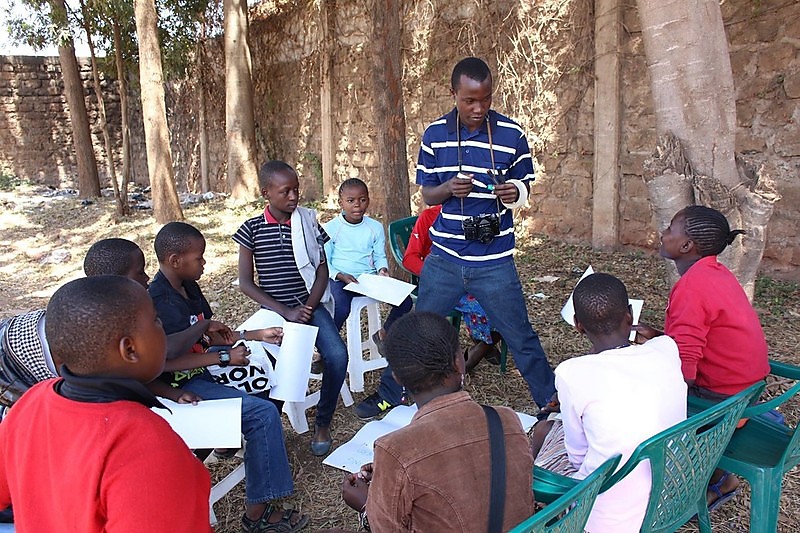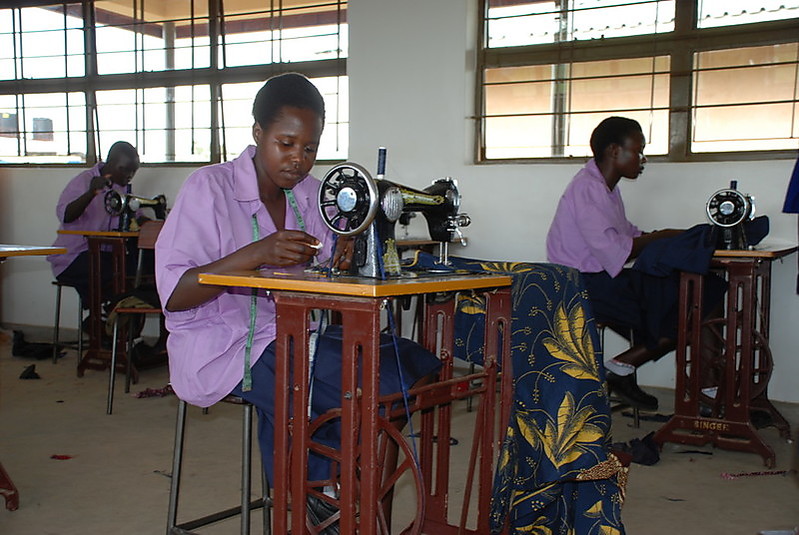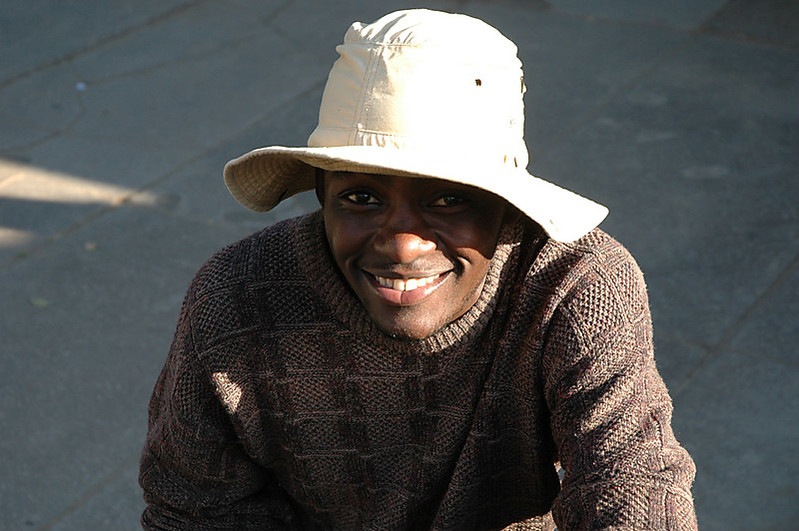Supporting youth work can pay off for Nigeria
November 8th, 2019
YOUTH WORK WEEK SPECIAL: Youth work is not a recognised profession in most developing countries. But with hundreds of highly skilled and talented young people leaving Nigeria each year in search of greener pastures, Abisola Onatoye, 24, a Commonwealth Correspondent from Ogun State in Nigeria, asks whether youth workers can help motivate young people to contribute to economic growth and innovation in their own country.
Nigeria’s population is around 202 million. About 66 million of these are young people between the ages of 15 and 30. Developed countries understand the importance of youth work as a way of motivating and engaging young people. And they have policies and actions to back this up.
But in Africa, and Nigeria in particular, youth work has very low support from the government. A 2017 Commonwealth study found that only a third out of the 35 countries studied have national youth work policies. Sadly, Nigeria was one of them.
The Commonwealth report found that although Nigeria has institutions that offer qualifications above a diploma level for youth work education and training, there were no specific policy commitments to youth work as a distinct professional category.
Additionally, there were no laws on youth work in the form of Youth Work Acts. Finally, there was no professional association for youth workers to ensure the quality and integrity of the profession.
For so many social projects I undertook while in Nigeria, I found it difficult to get assistance from the government. When I organised my first conference as an undergraduate student, I had to pull my own resources—coupled with funds from my mum and friends—to provide learning resources to the attendees.

I have always been passionate about youth and human development, so during my national youth service, I started a literacy centre for teens and young people. This was also self-funded. I have also organised a summit for young people. To try to get support for this, I wrote letters to organisations hoping to get sponsorship as I was fresh out of university. I kept reaching out to people in government, but never got feedback. If there was a government institution that addressed initiatives like this, it would have been helpful.
Nigerian youths are not lazy. They are driven and passionate about creating change. The system more often than not frustrates our efforts. Only the strong and determined who see past the frustration can succeed. If young people are supported and empowered, their impact can spread and reach more people, resulting in stronger economic growth.
Outside the shores of Nigeria, youth work and social work are actual jobs. There is a university degree for it, professional training and certifications. Other governments understand the essence of youth empowerment, and employment agencies are put in place to educate and mentor youths.

Grants and government funding, monthly stipends, employment incentives, tax-free incentives for new business owners, and systems set up to fight against rape and abuse are some of the benefits young people enjoy in some countries.
Dedicated non-profit organisations focus on needs such as housing, education, health, jobs, food and clothing. They work hand in hand to refer clients to where they believe their needs can be met.
So, your social or youth worker can link you to an employment agency to help you get a job. Afterwards you are referred to a clothing bank to get the right outfits for interviews and for work. Low-income families have access to food banks, where they can get food for free.
Apart from the fact that a system like this takes people off the streets and gives them better opportunities, it means young people can have freedom to be creative. They can boldly pursue solutions to issues because they know there is a safety net to catch them if they fall. No wonder more innovations come from developed countries—the environment is conducive for building and creating.
Governments of developing economies must put in place structures to encourage and fund individuals or institutions that empower young people. There needs to be free education and easier access to funds for youth workers and non-profit organisations working with young people.
The government needs to allocate a certain percentage of its annual budget to youth development and human capital development. Through this budget, youth workers can apply for grants and do more work in their communities.
Young people are the future. Let’s empower youth workers and increase our investment in human capital.
Photo credit: Young man (Kevin Nellies)/ Seamstress students (Victoria Holdsworth)/ Photography teacher (Francis Kathae) – The Commonwealth Asset Library
……………………………………………………………………………………………………………………………………………………………..
About me: I am passionate about youth development, nation-building, and human capital development, and would love to become the Minister for Youth and Human Capital Development.
A graduate of Economics from Covenant University, Nigeria, I currently work as a Youth Program Facilitator. I am also a Growth and Immigration Blogger on thehatchinglady.com, and I partner with various growth and youth empowerment platforms.
I have worked as a social entrepreneur for more than three years. Some people refer to me as a life coach, but I would rather say that I simply enjoy supporting people. I love storytelling, trying new food, travelling, African fabrics, music and public speaking.
……………………………………………………………………………………………………………………………………………………………..
Opinions expressed in this article are those of the author and do not necessarily represent the views of the Commonwealth Youth Programme. Articles are published in a spirit of dialogue, respect and understanding. If you disagree, why not submit a response?
To learn more about becoming a Commonwealth Correspondent please visit: http://www.yourcommonwealth.org/submit-articles/
……………………………………………………………………………………………………………………………………………………………..




